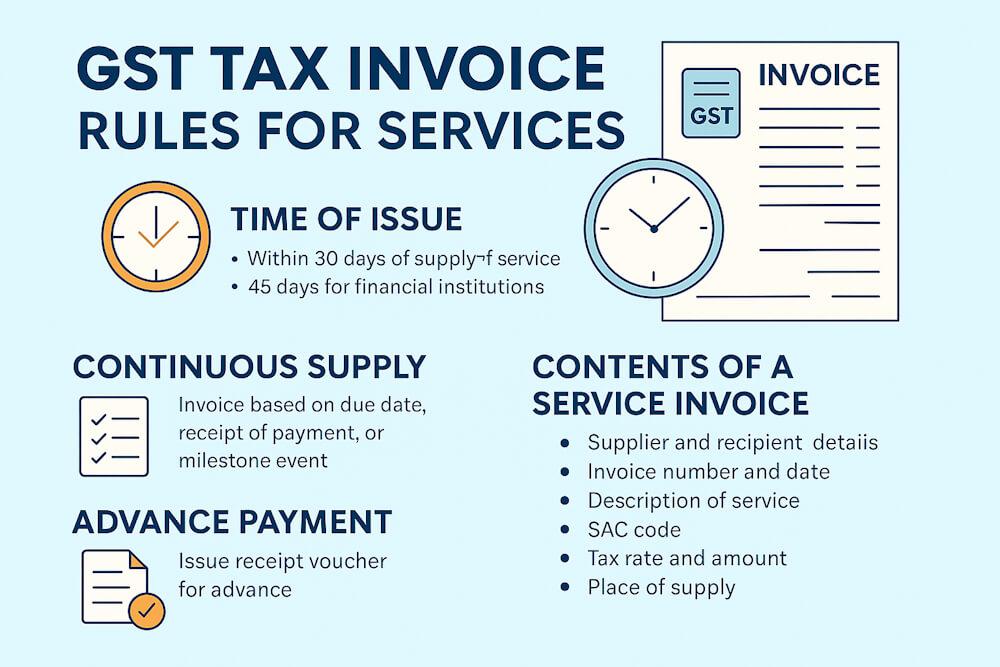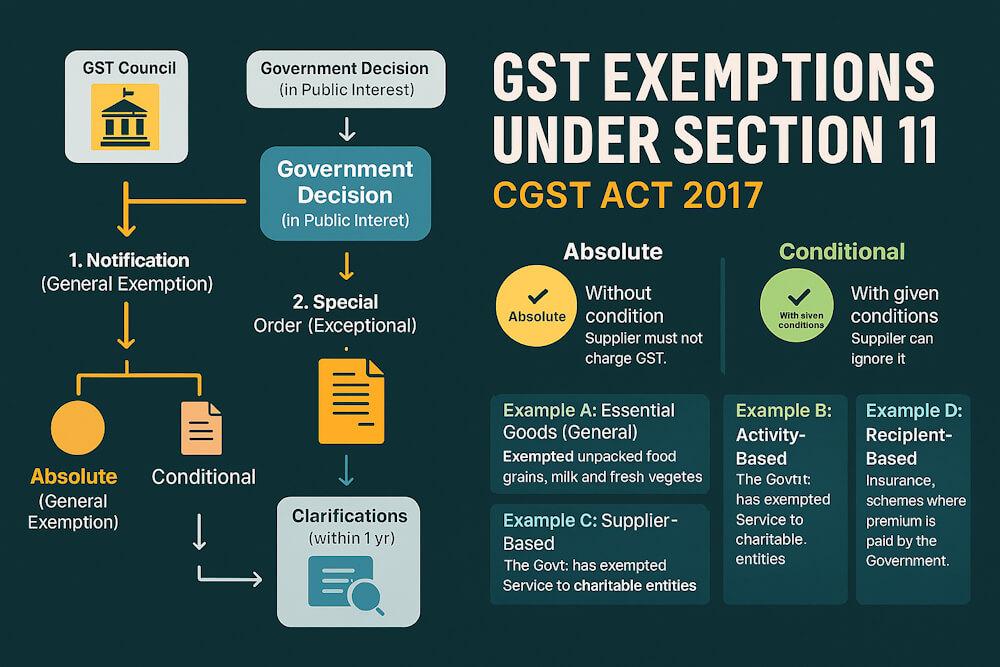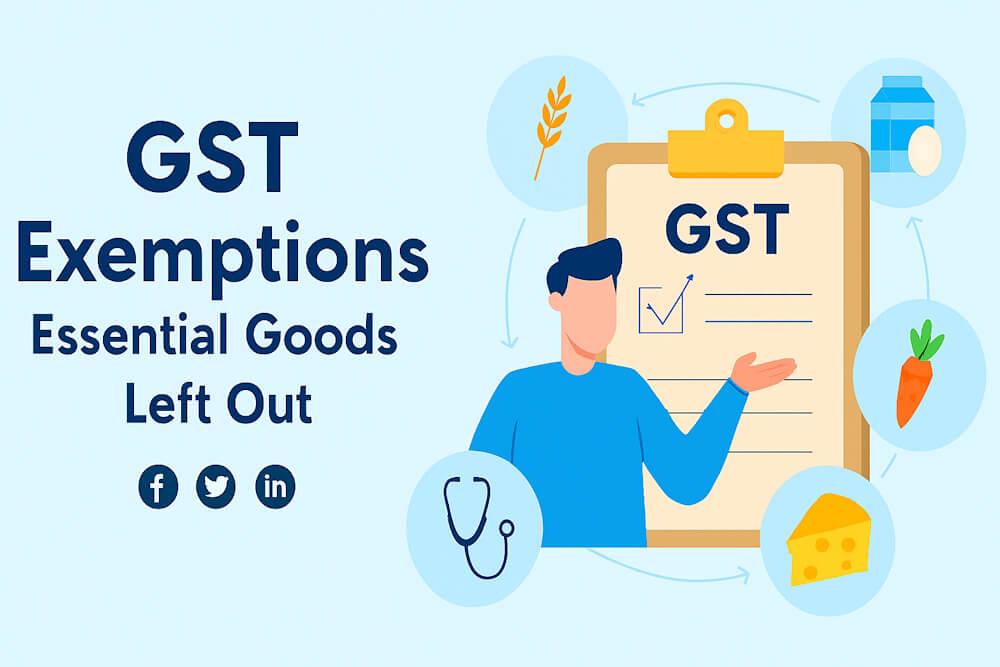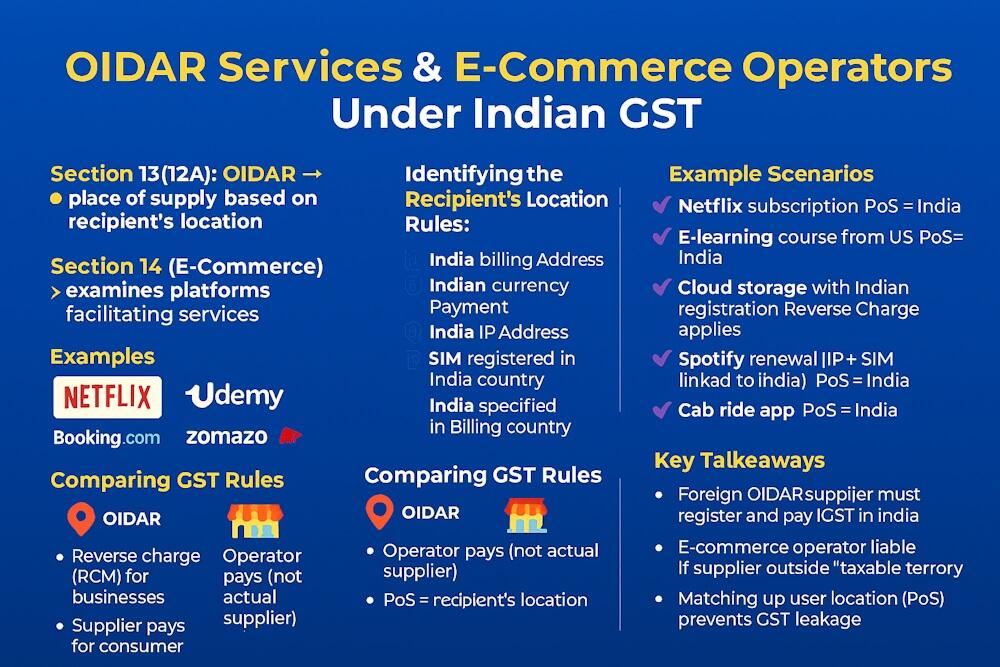If you’ve ever tried to read GST law straight from the book, you’ll know it’s like stepping into a maze of legal words. Everything looks complicated until you figure out what the basic terms actually mean. Once you get those right, the rest feels a lot less scary.
Let’s be real—GST isn’t about memorizing every section. It’s more about understanding the few core definitions. If you don’t get them, the whole thing feels confusing. If you do, the pieces start to fall into place. So in this blog, I’ll walk you through the main ones—goods, services, consideration, business, and a few more—without the jargon.
Goods
We all think we know what goods are—stuff you can see and touch. And yes, that’s pretty much it, but GST has a very specific way of saying it: goods mean every type of movable property (except money and securities).
So a bag of rice, a laptop, a car, even electricity… all count as goods. But if you’re dealing with cash or shares, those don’t count.
👉 Think of it like this:
- You buy furniture from a shop—goods.
- A farmer sells wheat from his field—goods.
- You sell your mutual fund units—nope, not goods.
Services
Now here’s where GST plays smart. Anything that is not goods, money, or securities basically gets dumped into the services basket. So if it’s not a physical item, chances are it’s a service.
👉 Examples you see every day:
- Watching a movie in a cinema hall = service.
- Booking a cab online = service.
- Bank charging you ₹50 for a cheque book = service.
- Renting out your shop = service too.
In short, if there’s some value being provided but no “thing” is changing hands, GST will call it a service.
Consideration
This one sounds complicated but it’s actually simple. Consideration = payment. Not just cash though—it could be in kind, or even an act in return.
👉 Let’s say:
- You pay ₹700 for groceries—that’s consideration in money.
- You trade in your old bike plus some cash to buy a new one—that’s part goods, part money, still consideration.
- A lawyer helps his friend for free—no consideration, so GST doesn’t see it as supply.
One more point: security deposits aren’t considered payment unless they’re adjusted later. And subsidies from the government? Not consideration at all.
Business
Here’s where a lot of people get tripped up. GST applies to supplies made “in the course of business.” But what is business?
According to GST, it’s… well, pretty much anything that looks like trade, commerce, manufacturing, or a profession. And you don’t even need regularity or profit. A one-time activity can still fall under business.
👉 Quick examples:
- Shopkeeper selling clothes—obviously business.
- Race club running horse betting—business.
- A doctor with his private clinic—business.
- Even selling old assets in an auction—yes, can still be business.
Supplier and Recipient
Easy to remember:
- Supplier = the one who gives goods/services.
- Recipient = the one who gets them (even if someone else pays).
👉 Example: You buy a phone for your kid online. Amazon is the supplier, your kid is the recipient, and you’re the one paying.
Actionable Claim
Sounds very technical but here’s a simple way to look at it: an actionable claim is a right you can take to court.
Things like lottery tickets, betting, gambling—they’re actionable claims. Some of them (like betting and lottery) fall under GST, but many others (like insurance claims) don’t.
Taxable Supply
This one’s short and sweet: taxable supply = a supply of goods or services on which GST is chargeable. If the item is exempt (say, fresh fruits or education services), it’s not taxable supply.
Money and Securities
This is where GST draws the line. Pure money transactions (like exchanging currency notes) are not supply. Same with securities (shares, bonds, derivatives).
👉 But here’s the twist: if someone charges you a fee for handling those transactions—like a broker taking commission—that fee is taxable because it’s a service.
Why Bother With These Definitions?
Because everything else in GST is built on top of them. If you mix up goods and services, or forget what counts as consideration, you’ll either end up paying tax where you shouldn’t or skipping tax where you should have paid. Both are risky.
- A landlord needs to know renting a shop is a service.
- A trader should know shares aren’t goods.
- A business exchanging products must realize barter still means GST applies.
Understanding these basics saves you from trouble and makes compliance smoother.
Final Thoughts
To be honest, GST isn’t as scary as it first looks. It’s really about knowing the basics. These definitions may feel dry, but they’re the base that holds the whole thing up. Miss them, and nothing else makes sense.
So if you’re ever confused about GST, don’t overthink it. Just go back to the simple stuff—goods, services, consideration, business, supply. Get those straight, and you’ll be able to figure out the rest without too much stress.





